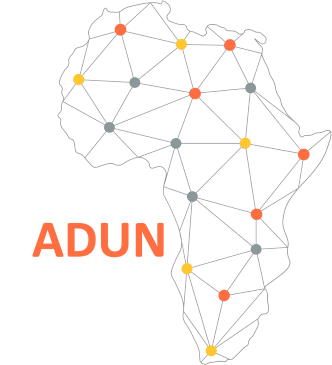ADUN
2020 COLLOQUIUM
Programme – Day 1
Tuesday, 10 March 2020
Welcoming: Prof. Arnold Schoonwinkel
Professor Schoonwinkel, Vice Rector (Teaching and Learning) at Stellenbosch University welcomed all colloquium participants and made specific reference to the main purpose of ADUN: to disseminate what we are learning in terms of practice-based and scholarly lessons as well as our reflections on the changing higher education and teaching and learning field specifically situated in the African context.
Opening: Dr Sonja Strydom
Sonja Strydom, the current coordinator of ADUN opened the two-day activities by highlighting the priorities for the network as well as the colloquium.
Emphasis was placed on the necessity not to duplicate what already exists in terms of current networks and projects in Africa. This network remains committed to move beyond ‘talking’ to action. The three broad pillars of the network, namely innovation, scholarship and networking were once again emphasized.
Panel discussion: Dr JP Bosman
JP started the activity by providing participants with some guiding questions related to the following panel discussions. It was emphasized that the panel was not a ‘conventional’ panel, but rather a ‘hybrid’ between presentations, thinking, Q&A and discussion.
The following colleagues participated in the panel discussion:
1. James Njenga (University of the Western Cape, South Africa)
James outlined the drivers of change in higher education and argued that digital technologies pave the way for ‘bringing the university to the device’. He sensitized the audience about the importance of the close relationship between higher education and industry and argued that, due to a highly regulated environment, goals to innovate in HE might be restricted.
In order to address such issues, there is a clear need for (digital) networks to share knowledge and experiences, to differentiate offering and to collaborate with industry partners.
2. Martin Butler (Stellenbosch University, South Africa) participated via live-streamed Zoom
Martin’s contribution centred around the themes of (a) understanding innovation, (b) innovation in Africa, and (c) the successes and aspirations of University Stellenbosch’s Business School as case study.
In terms of the notion of innovation, Martin argued that it is a term the originates from real-life problems and responding to everyday problems with the ultimate goal to enrich people’s lives. The value that we place on innovation will always be context-specific.
3. Maggie Beukes-Amiss & Erkkie Haipinge (University of Namibia, Namibia) via pre-recorded video
Maggie and Erkkie focused on practical examples of innovation with the Namibian context. For instance, they highlighted the role of the internet of things on irrigation systems, ChatBots for conversing with distance students and the social networking site, Namhook, that posts job vacancies in Namibia. The colleagues described in their view the future of innovations in Namibia and Africa.
4. Dick Ng’ambi (University of Cape Town, South Africa) via live-streamed Zoom
The key theme of Dick’s contribution focused on empowering citizen developers. He argued that we need more questions to trigger innovation and made the case that mobile penetration is not yet as effective as it could be. This is where the value of citizen developers could be of note.
Dick suggests that citizen developers are highly creative problem solvers with little or no prior coding knowledge, but who make use of rapid application and development (RAD) platforms to create fairly advanced applications.
5. Barbara Moser-Mercer (University of Geneva, Switzerland)
As a cognitive psychologist, Barbara is interested in the ‘last frontier of learning’ (i.e. how people learn in vulnerable environments). Barbara is currently involved in building higher education spaces (learning hub models) in refugee camps, developed by refugees themselves. It is argued that there is a need to embrace formal and non-formal/incidental learning, but not only on a technical level, but also on an emotional level. Barbara made the argument that the lower the level of technology, the more viable and sustainable a suggested solution probably will be.
Audience responses included some of the following broad thoughts:
Context
- Absolutely critical to understand context before we try to innovate
- Interrogating our context can generate valuable questions as springboard for (value-adding) innovations
- We need to dig deeper into the implications of language in the virtual learning context (e.g. the potential need for subject-matter experts to assist with translations)
Virtual Learning
- Virtual learning has its limits. The human, emotional connection required for learning is essential. (‘Human-centred’ as opposed to ‘tech-centred’)
- Agreement with the notion that developing critical thinking should underpin digital learning models.
Role of HE
- Are universities ‘dinosaurs’ in the virtual learning space? Is the very identity of the university at stake, due to its slow adoption of (so-called) digital entrepreneurship?
- How can we break the institutional/regional silos we work in? (Perhaps this very event is a step in the right direction).
Focusing on people
- The notion of empathy as a basis to understand ‘users’ needs (i.e. students’, academics’ or other stakeholders’ needs) resonates.
- Similarly, Barbara’s mention of the ‘Theory of Change’ resonated, as well as the ‘Theory of Adaptive Expertise’ (i.e. enabling students to go beyond routine skills development, looking at problems from various perspectives and stepping into the shoes of others to interrogate issues).
Innovation
- Students should be framed as active participants in their learning. Learning innovations should be driven by ideas that provide them with a sense of agency and ownership in their learning.
- Innovation loves constraints.
Soapbox presentations
Please see “Soapbox sessions” tab, for abstracts and video clips.
